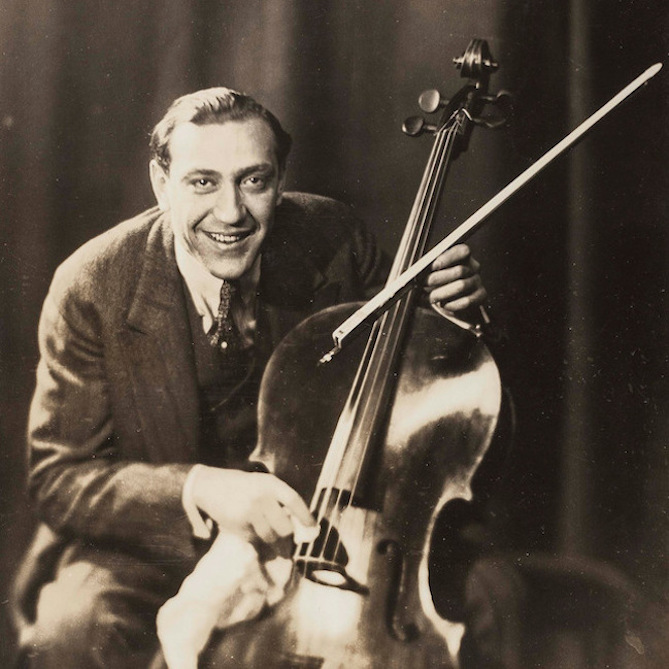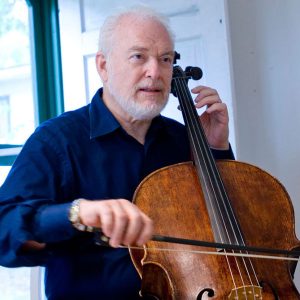
My First Lessons with Gregor Piatigorsky
Paul Katz
In 1961, Jascha Heifetz, Gregor Piatigorsky and William Primrose joined the faculty of the University of Southern California where I was a cello student studying with the highly inspiring Gabor Rejto. As fate would have it, Rejto was leaving on sabbatical that year and so I auditioned for Piatigorsky and was admitted to his first class at USC. Two amazing years with him followed—he was truly a creative genius, a great psychologist, and a supportive father figure that cared deeply about everyone that he taught.
We were a new class of students, however, and as we entered the room that first day, none of us knew what to expect:
Excited that I was going to be studying with the ‘Great Grisha,’ I bought a new short-sleeved, bright orange shirt for this special occasion. Made from a material called Ban-Lon, an early synthetic similar to nylon, it was most likely a golf shirt! The big day came, and I entered the room, nervous, excited and focused on playing the Dvorak Concerto. But Piatigorsky took one look at me in my California orange and threw me out, telling me to come back in a suit and tie. There then followed a speech about the dignity of the artist which, in my traumatized condition, I thought would never end. The room was full of the new class of cellists, He made fun of me for not knowing how to present myself, and although he did it in a good-natured manner, I was humiliated!
I returned to his second class meeting, three days later, and he threw me out again! My suit was not properly tailored! The coat sleeves were too long and hung over my hands. “Mr. Katz,” he respectfully, (and perhaps a bit sarcastically) said, “you vant to be grrreat cellist? You vant za puple in audience to love and rezpect you, and you drress like zis?” Piatigorsky then took his own coat sleeves, pulled them down over his knuckles, and with a hopeless, sad-sack facial expression, shuffled dejectedly around the room. He got a hilarious response from the class…and I looked for a hole into which I could crawl!
I was a completely unsophisticated 19 year old, and Piatigorsky was one of the planet’s great aristocrats, elegant, extraordinarily wealthy, toast of the world, very aware of image and presentation (watch his videos)! He proceeded to give me a serious lesson in how shirt cuffs need to be 2″ longer than jacket sleeves, so that the shirt cuff (and the cuff links of course!) would be visible when holding the hands up in playing position. He then told me to go have my suit properly tailored before I came back.
It was a much more formal world 50 years ago, and looking back on that day, I laugh at my lack of judgment and I understand the importance of his criticism—I needed that “lesson”!
Over the next two years I came to love and adore Piatigorsky, and I now thank him for everything that he taught and inspired in me. He not only helped my stage presentation and appearance, he gave me the strength and confidence to open emotionally and project music from the stage.
But yes, how to tailor coat sleeves was actually the very first thing I learned from Gregor Piatigorsky!
– Paul Katz
Subjects: Artists
Tags: Heifetz, humor, Paul Katz, Piatigorsky
